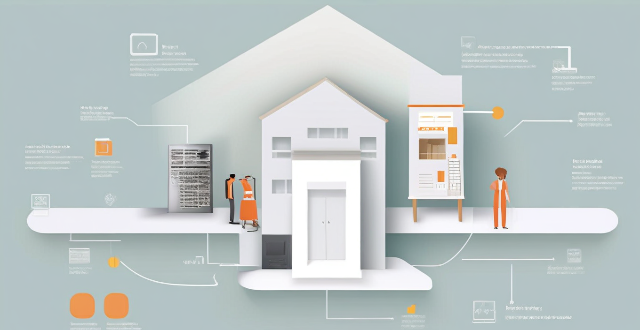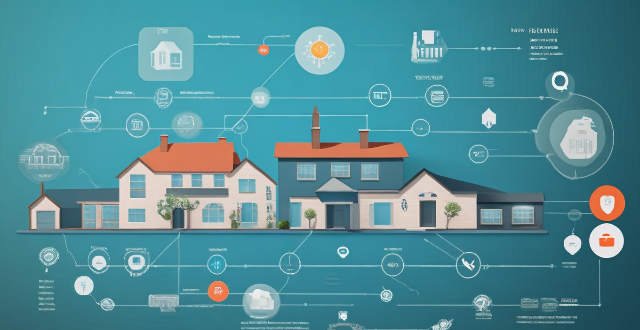Mortgage Home

What are the tax benefits of owning a home with a mortgage ?
The tax benefits of owning a home with a mortgage include the ability to deduct mortgage interest, property taxes, and private mortgage insurance premiums. Homeowners may also deduct interest on home equity loans if used for improvements and qualify for energy efficiency tax credits. Additionally, selling a primary residence allows for a capital gains exclusion, and working from home can provide a home office deduction. These benefits are subject to conditions and limitations; consulting a tax professional is recommended to understand their application to individual circumstances.

How does a home equity loan work in relation to my mortgage ?
A home equity loan allows homeowners to borrow against the equity in their property, serving as a second mortgage without requiring refinancing. It offers advantages such as lower interest rates and potential tax deductions but also presents risks like foreclosure and additional debt. Understanding how it works in relation to your primary mortgage is crucial for making an informed financial decision.

What are the current mortgage rates for first-time homebuyers ?
The text discusses the current mortgage rates for first-time homebuyers, detailing the various types of loans available, such as Federal Housing Administration (FHA) Loans, Conventional Loans, and Adjustable-Rate Mortgages (ARMs), and providing key points for each type. It also offers tips for first-time homebuyers to consider when looking at mortgage rates, including improving credit scores, saving for a down payment, comparing lenders, considering all costs, and consulting a professional. The text emphasizes the importance of shopping around and comparing offers from multiple lenders to find the best rates and terms for individual financial situations.

How long does it take to get approved for a mortgage ?
Getting approved for a mortgage is an essential step in the home buying process. The time it takes to get approved can vary depending on several factors, including your financial situation, the type of loan you are applying for, and the lender you choose. In this article, we will discuss the different stages of the mortgage approval process and provide an estimate of how long each stage typically takes. ## Stage 1: Pre-approval Pre-approval is the initial step in the mortgage approval process. During this stage, you will need to submit various documents to your lender, such as pay stubs, tax returns, and bank statements. Your lender will then review your financial information to determine if you qualify for a mortgage and what size loan you can afford. This stage typically takes around 1-3 business days. ### Documents needed for pre-approval: - Pay stubs from the past two months - W2 forms or tax returns from the past two years - Bank statements from the past two months - Credit report ## Stage 2: Underwriting Once you have been pre-approved, your lender will begin the underwriting process. During this stage, your lender will verify the information you provided during pre-approval and ensure that you meet all of their lending requirements. This stage typically takes around 5-7 business days. ### Tasks performed during underwriting: - Verifying employment and income - Checking credit history and scores - Evaluating assets and liabilities - Assessing property value and condition ## Stage 3: Closing If your lender approves your loan application, you will move on to the closing stage. During this stage, you will sign all of the necessary paperwork to finalize your loan. This stage typically takes around 3-5 business days. ### Tasks performed during closing: - Reviewing final loan documents - Signing loan agreements and disclosures - Paying closing costs and fees - Receiving keys to your new home ## Estimated Timeline for Mortgage Approval In summary, the estimated timeline for getting approved for a mortgage is as follows: 1. Pre-approval: 1-3 business days 2. Underwriting: 5-7 business days 3. Closing: 3-5 business days Overall, it typically takes around 9-15 business days to get approved for a mortgage. However, keep in mind that this timeline can vary depending on factors such as your financial situation, the lender you choose, and any potential delays or issues that may arise during the process.

Can I pay off my mortgage early without penalty ?
Paying off a mortgage early can save homeowners significant interest, but it's crucial to understand potential prepayment penalties. Mortgages often include clauses that either allow for penalty-free prepayments or impose fees for early payoffs. Homeowners should review their loan agreements, contact lenders for clarification, and assess the financial implications before deciding to pay off their mortgage early. Alternative strategies like refinancing or making smaller extra payments within allowed limits can also be considered to avoid penalties and achieve financial goals.

How does a co-signer affect my mortgage application ?
A co-signer is a person who signs a loan application along with the primary borrower. The co-signer agrees to take on the responsibility of repaying the loan if the primary borrower fails to do so. In this article, we will discuss how a co-signer affects your mortgage application. The credit score of both the primary borrower and the co-signer plays a significant role in determining the eligibility for a mortgage loan. A co-signer with a good credit score can improve the chances of getting approved for a mortgage loan. However, if the co-signer has a poor credit score, it may negatively impact the loan approval process. The income and debt-to-income ratio (DTI) of both the primary borrower and the co-signer are also important factors that lenders consider when evaluating a mortgage application. If the co-signer has a high income and low DTI, it can help strengthen the application and increase the chances of approval. On the other hand, if the co-signer has a low income or high DTI, it may negatively impact the loan approval process. Lenders also consider the employment history of both the primary borrower and the co-signer when evaluating a mortgage application. A stable employment history can demonstrate financial stability and reliability, which can positively impact the loan approval process. If the co-signer has a stable employment history, it can help strengthen the application and increase the chances of approval. The assets and liabilities of both the primary borrower and the co-signer are also taken into consideration by lenders when evaluating a mortgage application. If the co-signer has significant assets and few liabilities, it can help strengthen the application and increase the chances of approval. However, if the co-signer has significant liabilities or limited assets, it may negatively impact the loan approval process. In conclusion, a co-signer can have a significant impact on your mortgage application. Their credit score, income and DTI, employment history, assets, and liabilities are all factors that lenders consider when evaluating a mortgage application. It is important to choose a co-signer who has a good credit score, stable employment history, and low DTI to increase the chances of getting approved for a mortgage loan.

What is the difference between a fixed-rate and adjustable-rate mortgage ?
The text discusses the differences between a fixed-rate and adjustable-rate mortgage. A fixed-rate mortgage has a constant interest rate throughout the loan term, offering stability and predictability in monthly payments. An adjustable-rate mortgage (ARM) has a fluctuating interest rate based on market conditions, with potential savings if rates decrease but also the risk of higher payments if rates increase. The choice between the two depends on personal financial situation, risk tolerance, and long-term goals.

What is private mortgage insurance (PMI) and do I need it ?
Private Mortgage Insurance (PMI) is a type of insurance that protects the lender, not the borrower, in case of default on a mortgage loan. It is typically required when a homebuyer makes a down payment of less than 20% of the home's purchase price. Whether you need PMI depends on factors such as your down payment, credit score, loan-to-value ratio, and type of loan. Consider the cost of PMI and alternatives before deciding to obtain it.

What happens if I miss a mortgage payment ?
Missing a mortgage payment can lead to immediate financial penalties, negatively impact your creditworthiness, and put your home at risk in the long term. It's essential to communicate with your lender early and explore all possible options to mitigate the consequences before they spiral out of control.

How do I qualify for a mortgage loan ?
This article provides a detailed guide on how to qualify for a mortgage loan, highlighting key factors that lenders consider such as income, credit score, debt-to-income ratio, employment history, and assets and liabilities. It also outlines steps to take in order to increase chances of success including checking your credit score, calculating your DTI, gathering financial documents, shopping around for lenders, getting pre-approved for a loan, finding a home within budget range, making an offer, and completing the closing process.

Can I refinance my mortgage to get a lower interest rate ?
Refinancing a mortgage can lead to lower interest rates and monthly savings, but involves costs like closing fees. Eligibility depends on credit score, equity, and DTI ratio. Consider market conditions and break-even point before deciding. The process includes researching, applying, providing documentation, appraisal, underwriting, closing, and funding. Alternatives include recasting, loan modification, and government programs.

What is the process of applying for a mortgage ?
The process of applying for a mortgage involves several steps, including determining your budget, checking your credit score, shopping for lenders and loan programs, gathering necessary documents, submitting your application, underwriting and approval, and closing the deal. It's important to carefully review all paperwork and pay closing costs before officially becoming a homeowner.

What are the closing costs associated with a mortgage ?
Closing costs are fees and expenses associated with finalizing a real estate transaction. These costs vary based on location, property type, and lender requirements. Common closing costs for buyers include loan origination fees, appraisal fees, credit report fees, title search and insurance fees, attorney fees, recording fees, prepaid interest, homeowner's insurance premium, property taxes, and other miscellaneous fees. It is important to budget for these expenses in advance and review all closing documents carefully to avoid any financial surprises during the home-buying process.

How much down payment do I need to buy a house ?
This article discusses the factors affecting the down payment amount for buying a house, including credit score, type of mortgage, and price of the house. It also provides common down payment requirements for different types of mortgages and tips for saving for a down payment.

Can I get a mortgage with bad credit ?
Getting a mortgage with bad credit is possible but may be more challenging and come with less favorable loan terms. To increase your chances, check your credit score, work on improving it, shop around for lenders, consider alternative options like FHA or VA loans, and be prepared to make a larger down payment.

What is the correlation between housing market indicators and the overall economy ?
The housing market is a significant indicator of the overall health of an economy, intertwined with employment, consumer spending, and financial markets. Housing starts and permits signal economic growth; existing home sales reflect consumer confidence; home price indexes affect household wealth and consumer spending; mortgage rates influence home purchases; inventory levels indicate market strength or challenges; builder confidence suggests future construction trends; foreclosure rates reveal economic distress; and rental market trends show limited purchasing options. These indicators provide insight into different facets of the economy, painting a comprehensive picture of the housing market's health and its relationship with the overall economic condition.

How can I integrate smart home devices with my home security system ?
The article provides a step-by-step guide for integrating smart home devices with a home security system, including determining compatibility, selecting the right devices, installing and configuring them, connecting to the security system, and testing the integration. The goal is to enhance safety and convenience by allowing remote control and monitoring of access, video surveillance, sensors, and lighting.

How can I avoid injuries while working out at home ?
Working out at home can be convenient but also risky. To avoid injuries, warm up before starting your workout, use proper form and technique, start with lower weights and resistance, take breaks and rest between sets, cool down after your workout, and listen to your body. Following these tips will help you have a safe and effective workout routine at home.

What is the impact of smart home technology on the real estate market ?
Smart home technology has a significant impact on the real estate market by increasing home value, improving energy efficiency, enhancing security, allowing for customization and personalization, and integrating with other technologies. This makes homes equipped with smart devices more attractive to potential buyers, leading to faster sales and higher prices.

How can I ensure electrical safety in my home ?
Electrical safety is crucial for maintaining a secure home environment. Hire licensed electricians, schedule inspections, keep appliances clean, avoid overloading outlets, be cautious around water, childproof your home, use proper lighting, keep flammable materials away from electrical appliances, and know how to shut off power in emergencies.

What are some eco-friendly cleaning tips for my home ?
Eco-friendly cleaning tips for your home include using natural products like vinegar, baking soda, and lemon juice; reducing plastic waste by opting for reusable cloths and containers; minimizing water usage during cleaning tasks; choosing energy-efficient appliances; and making your own cleaning solutions. These practices help maintain a clean home while also reducing environmental impact.

What are the most popular voice-activated smart home gadgets ?
Voice-activated smart home gadgets have become increasingly popular for their convenience. The most common ones include smart speakers like Amazon Echo, Google Nest, and Apple HomePod, which can play music, set alarms, provide weather updates, and answer questions. Smart light bulbs, such as Philips Hue, can be controlled to turn on/off, adjust brightness, and change colors using voice commands.

How can I apply minimalist principles for quick and effective home organization ?
Minimalism is about intentional living and promoting clarity, calmness, and efficiency in your home. To apply minimalist principles for quick and effective organization, start by identifying your priorities through listing necessities and assessing functionality. Simplify your space by removing unnecessary items and creating open areas. Categorize and contain items by grouping them together and using clear labeling for easy accessibility. Streamline routines with daily maintenance and simplifying tasks through automation or batch processing. Regularly evaluate and adjust your organizational systems as needs change, embracing quality over quantity and mindful acquisition. Achieving an organized home reflects a purposeful lifestyle supporting well-being and function.

How much does a good home security system cost ?
The cost of a good home security system depends on various factors, including the type of system, features, installation fees, and monitoring services. While DIY systems are generally less expensive, professionally installed systems offer more advanced features and peace of mind through professional monitoring. When choosing a home security system, consider your specific needs and budget to find the best solution for your property.

What features should I look for when choosing a home security system ?
When selecting a home security system, consider features likeWhen selecting a home security system, consider features like monitoring services, high-definition high-definition cameras with night vision and motion detection, smart home integration for remote control, sensors for intrusion and environmental hazards, and reliable customer support. Look for systems that offer additional benefits such as automation capabilities and come with a warranty for long-term peace of mind.

How do I make restaurant-quality meals at home without spending too much ?
To make restaurant-quality meals at home without spending too much, start by planning your meals and shopping smart. Prep ingredients in advance and master basic cooking techniques. Invest in good kitchen tools and create the right ambiance to enhance the dining experience. Remember that practice makes perfect, so keep trying new recipes and learning from mistakes. By following these steps, you can enjoy delicious, affordable meals at home.

In what ways is AI being integrated into smart home technology ?
The integration of AI into smart home technology is transforming our daily routines and making our lives more comfortable, convenient, and efficient. Some ways AI is being integrated into smart home technology include personalized experiences, voice assistants, security and surveillance, energy management, health monitoring, entertainment, and maintenance and repairs.

How can I protect my home from wildfires ?
Wildfires can cause significant damage to homes and properties, but there are steps you can take to protect your home. Create a defensible space by removing dead vegetation, trimming trees and shrubs, creating a firebreak, mowing grass regularly, and removing combustible materials. Use fire-resistant materials such as Class A roofing materials, stucco siding, dual-pane windows with tempered glass, and solid core doors made of metal or fiberglass. Maintain your home by cleaning gutters, inspecting roofs and chimneys, checking electrical wiring, and maintaining heating systems. Have an evacuation plan in place by identifying escape routes, having a meeting place, packing emergency kits, and practicing evacuation drills.

What are the best home security systems available in the market ?
Home security systems have become an essential part of modern homes, providing peace of mind and protection against burglaries, fires, and other emergencies. With the advancements in technology, there are several home security systems available in the market that offer a wide range of features and benefits. In this article, we will discuss some of the best home security systems available in the market.